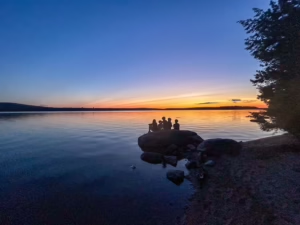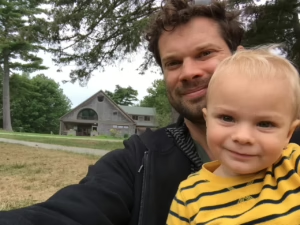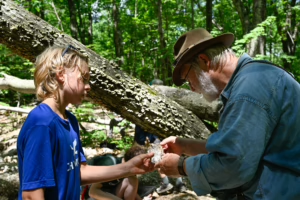Editor’s note: We sat down this week with Griffin Davey, Associate Director of Boys Camp and Katie Malek, Associate Director of Girls Camp for a post-season wrap-up on all things Camp Chewonki to get a few highlights from the summer.

Griffen Davey is originally from southeastern Pennsylvania, where he grew up involved in local 4-H clubs and camps. Despite feeling homesick for the first few nights of sleep-away camp, he quickly fell in love with camp and hasn’t missed a summer since!
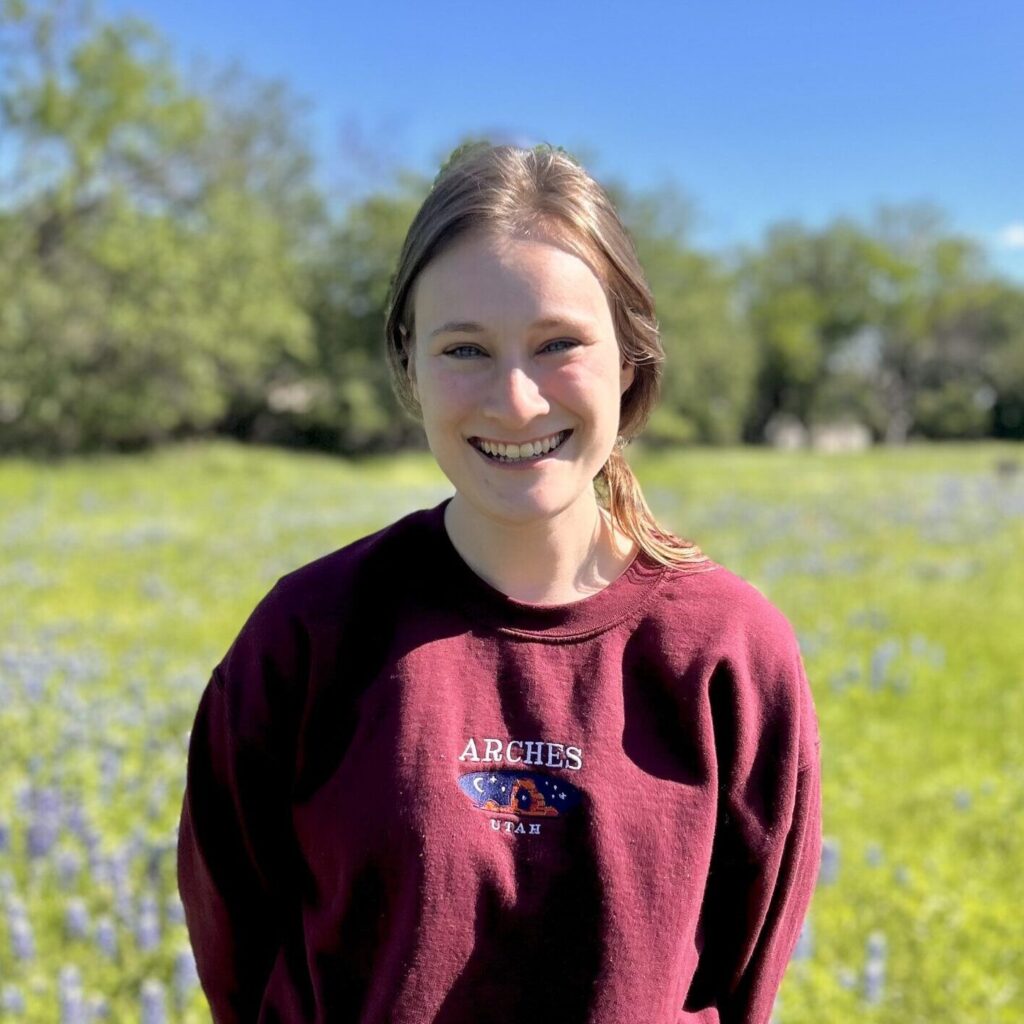
Katie Malek is from the Chicagoland area and her experience with summer camp began when she attended both day and overnight YMCA camps in the Chicago area as a child. She began working at camp during the summer of 2015 while pursuing her B.S. in Middle Childhood Education at Miami University in Ohio during the school year.
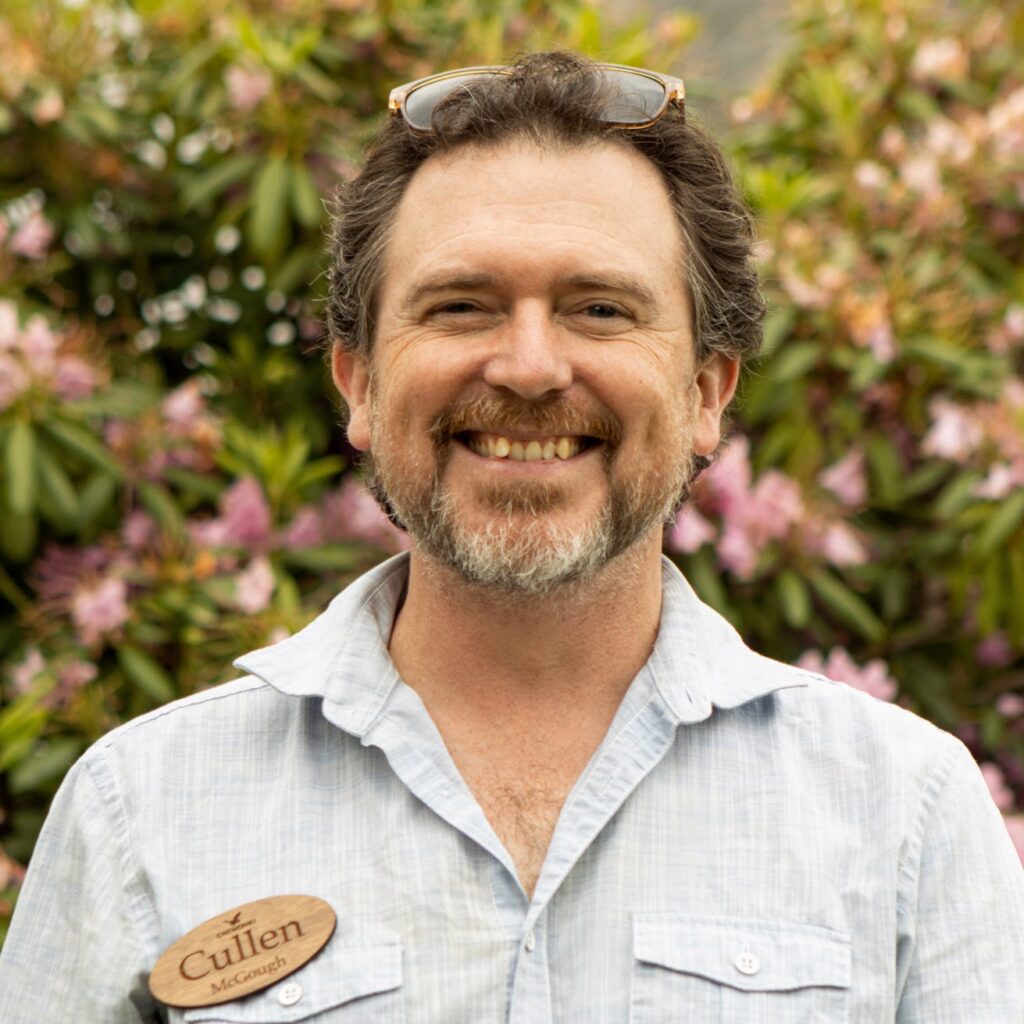
Cullen McGough is the Communications and Marketing Director for Chewonki and has over two decades of experience working for youth-serving organizations including Chewonki and Camp Hawthorne. Cullen is also a Proud Puffin Parent with one child currently attending Camp Chewonki and another one eager to join.
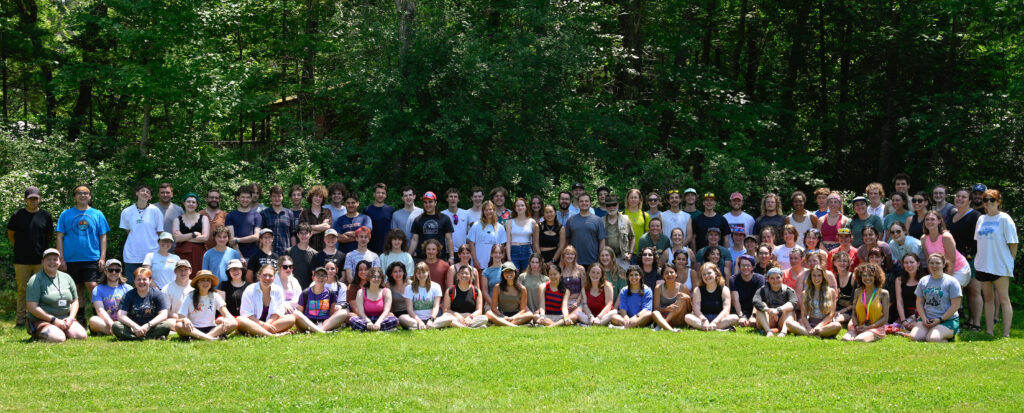
Cullen: Congratulations on completing Chewonki’s 109th year of summer camp! What was the news from this summer, any big changes?
Griffin: Thank you. Yeah, we tried some pretty sweeping changes with the schedule and rethought some programs, shuffling the order of things. One big change was condensing the cabin trips into two waves—one in the middle of the session and another shortly after that. Overall, there were very few bumps in the road. Balancing trips of different lengths and providing a full experience for all campers who are on campus at different times is quite tricky. This year with the schedule adjustments, things operated much smoother and we had to make far fewer adjustments on the go.
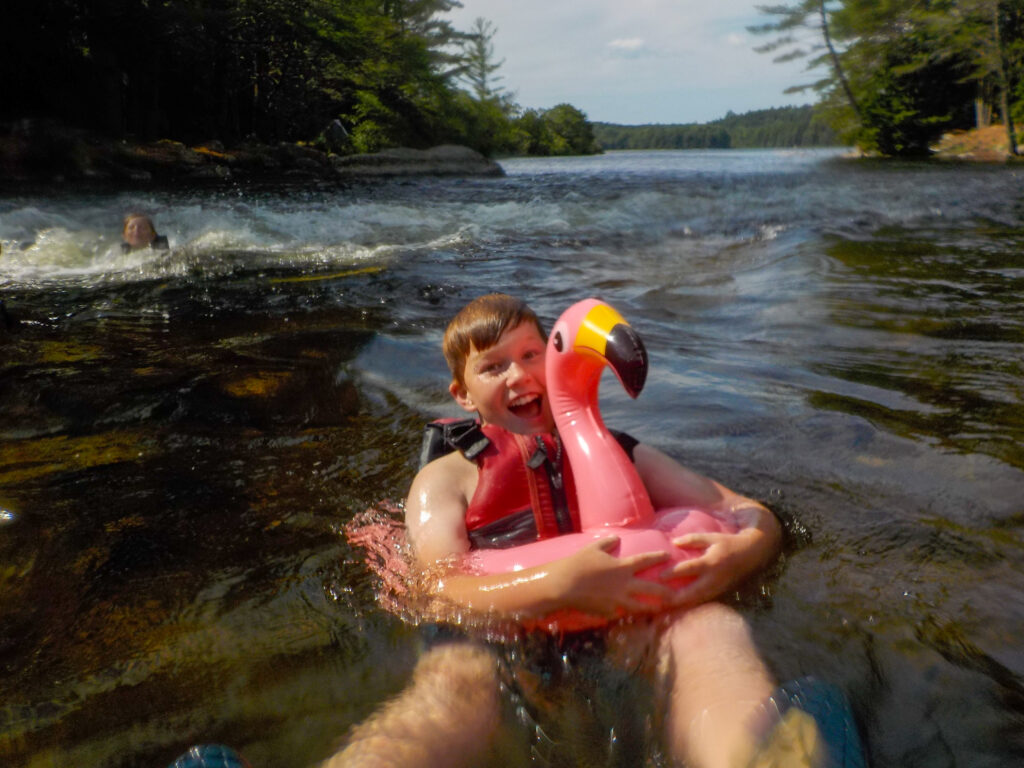

Katie M.: The quality of the staff really stood out to me. Compared to other camps I’ve worked at, we didn’t need constant reminders about safety or punctuality. And even toward the end of the summer when staff can start feeling tired or burnt out, they didn’t let that show to the kids. Their resilience was really impressive. Our Puffin cabin counselors, for example, were still coming up with new activities for the kids right to the end, like taking them on a blueberry-picking excursion and getting them excited about reading together. They kept the energy going right up to the end of camp, which was really great to see.
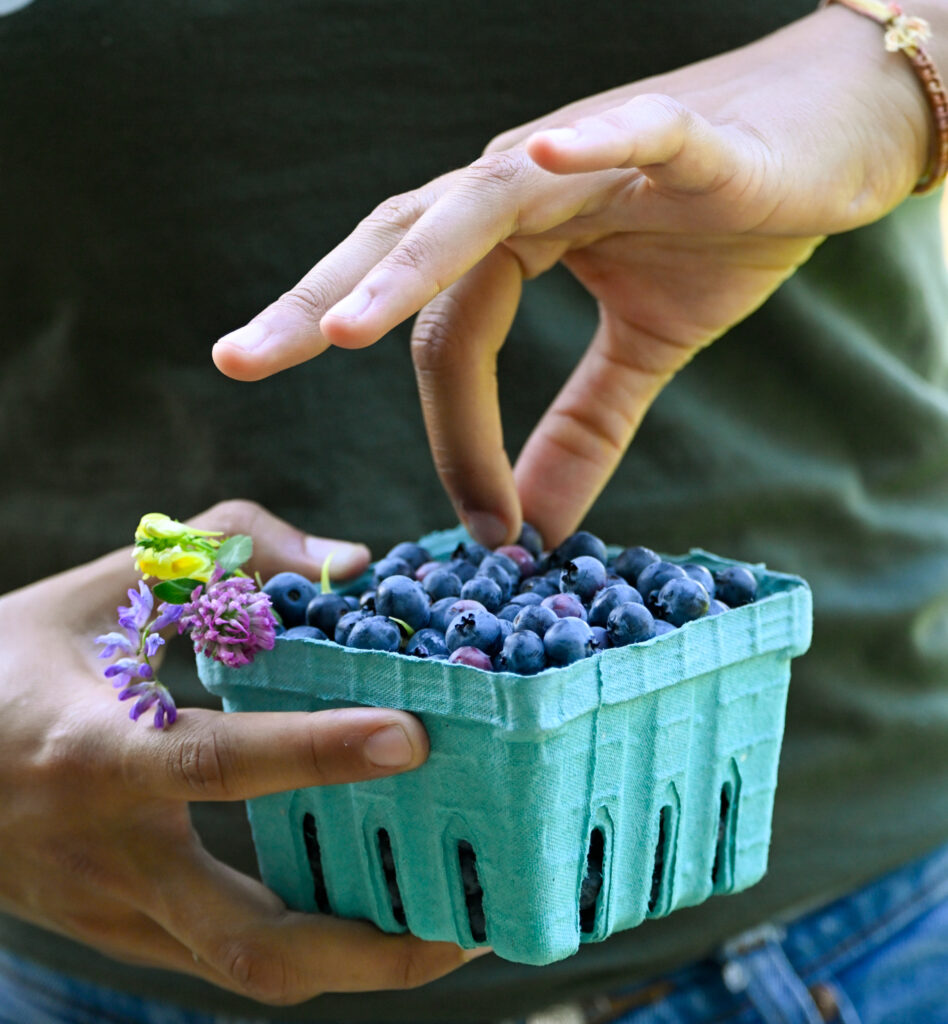
Cullen: Can you think of a specific moment or interaction where you realized, “This is great”?
Griffin: Definitely. James Doele, who was our Heron and Osprey coordinator in 2023, took on a big role as a program head this year, managing activity staff and operations. Part of running such a big program that offers so many different experiences is being able to adjust on the go. Whether it’s a staff member with a cold or inclement weather affecting a trip or big activity, we have to be ready to make quick fixes and move things around on the schedule. And somehow through this we’re always adding fun games and trying new things.
With some pretty big changes to how we arrange our schedule, staff roles, etc., I was ready to troubleshoot quite a bit with James. About a week into having campers, I checked in with him and he said, “I think we’re rolling!” And I said “We’re definitely rolling!”
So after a big offseason, ramp up, staff orientation, etc., it felt like we’d finally gotten things up to cruising altitude and things were just running so smoothly. It was a great moment.
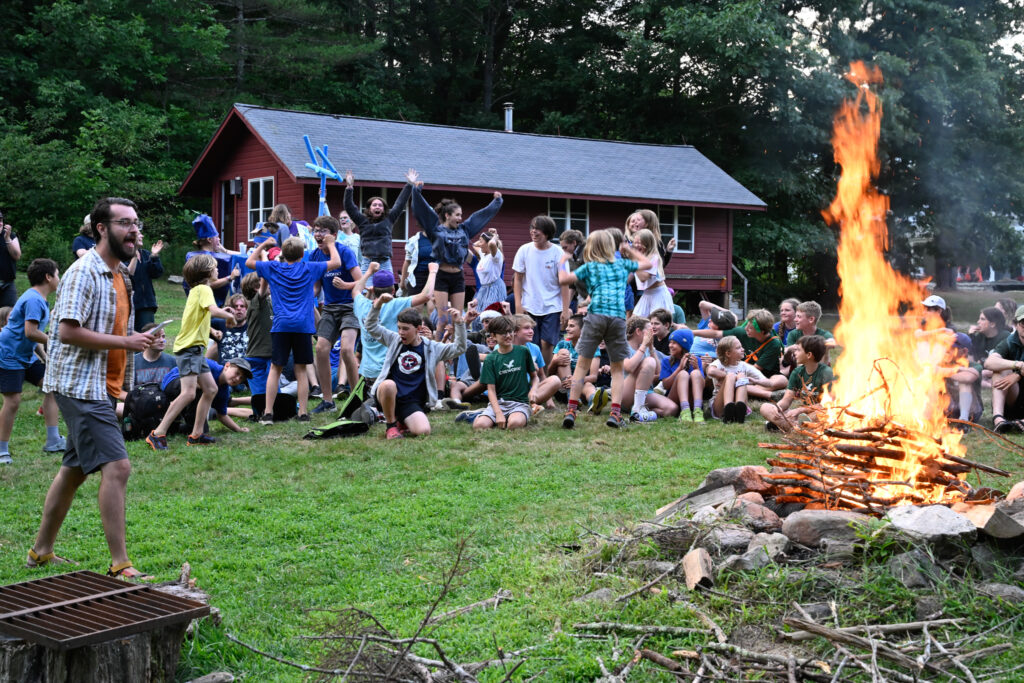
Cullen: Katie, how about a personal challenge? Were there any times where you felt you were really tested?
Katie M.: This was my first summer, and I hadn’t seen a full summer at Chewonki before, so I didn’t have much to base things on. I felt like I was improvising a lot, which is hard for me because I’m someone who really likes to have a plan. Going into something new—like Community Reflections—was nerve-wracking. But by the second session, things started to settle, and I felt confident.
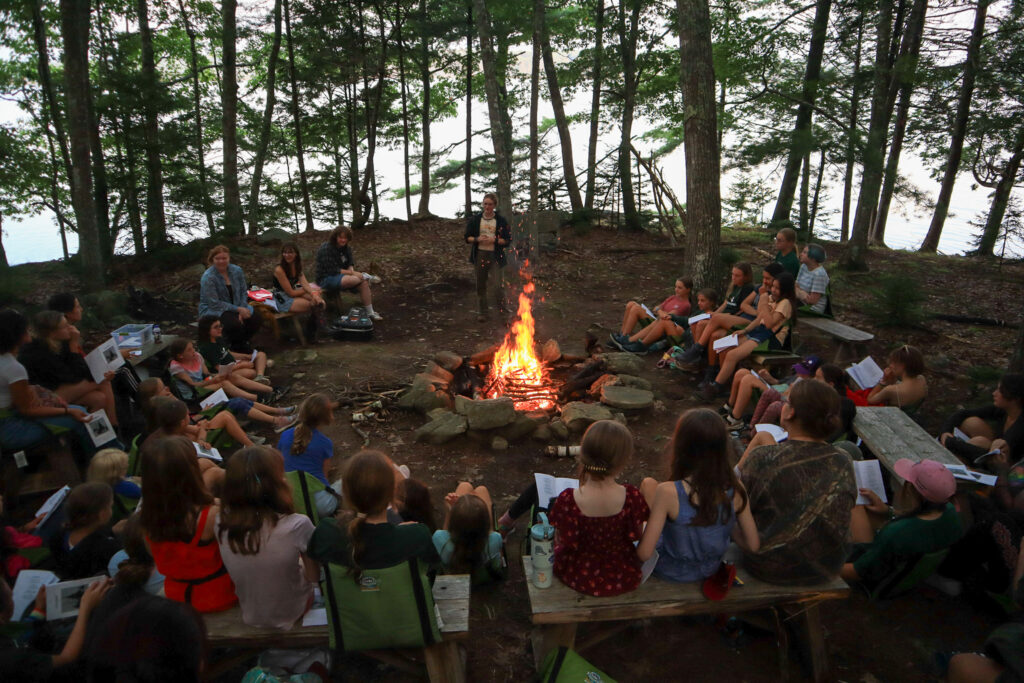
Cullen: Griffin, same question for you—what was your big challenge of the summer?
Griffin: It’s always about managing the flow of energy at camp, especially when most of the campers are out on trips. At the beginning of a session, everyone’s pumped up, but when there are only 15 or 8 kids left on campus and everyone else is out, it can be hard to keep things exciting. But once the campers come back from their trips, everything picks up again. It’s all about keeping the momentum going during those lulls and finding special activities or challenges to get the campers excited about.
Cullen: Do you have one that stands out?
Griffin: Oh yeah, definitely. We had this thing called Mealimination during the first session. It was a tournament that took place at lunch and sometimes dinner for nearly two weeks. Everyone in camp got a clothespin with their name on it, and they’d clip it to a photo of a competitor of their choice. The staff would compete in these silly challenges, and if you clipped your pin to the counselor who lost, you were eliminated too.
The challenges were random—everything from a wiffleball home-run-derby to cup-stacking races. You never knew which counselor would be good at what. As the tournament progressed, it got tougher, and eventually, we only had three staff and three campers left in the final. We settled it by throwing darts at balloons with headshots on them—it was the ultimate elimination round.
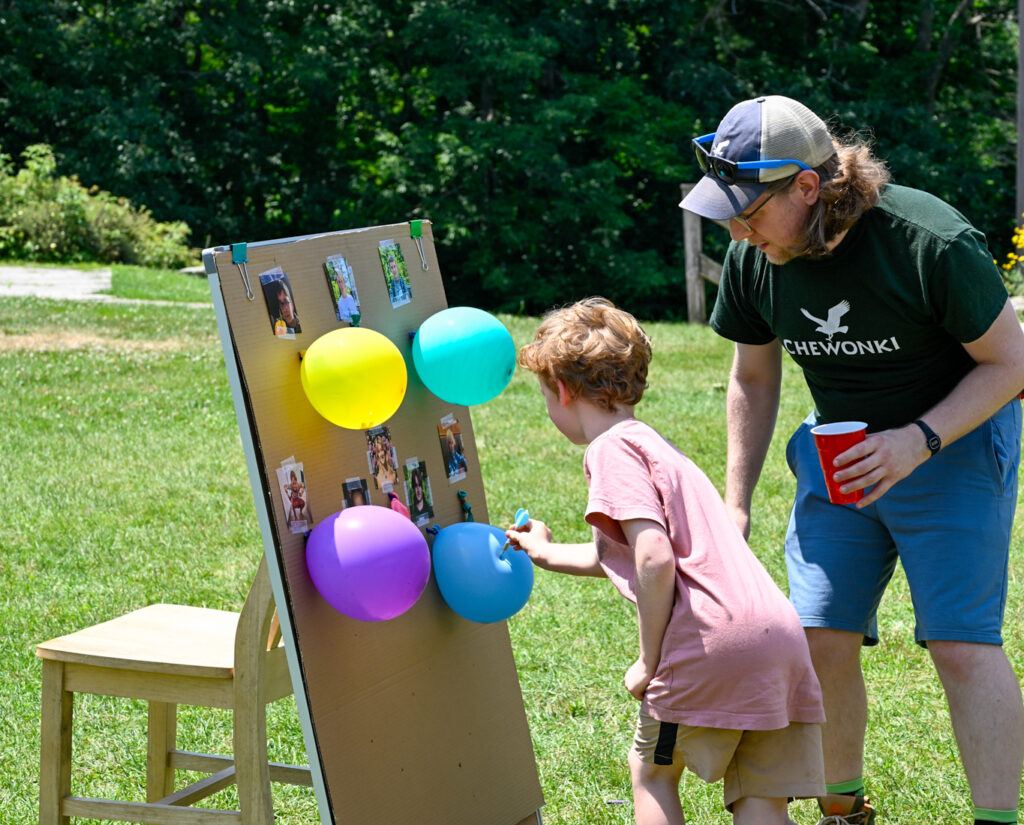
It came down to Dexter C., a 13-year-old Heron, and Fitzy C., a 7-year-old Puffin. Fitzy gave it his best, but Dexter eventually won the tournament. But the coolest part was how Fitzy handled himself. He was so excited, and even though he finished second, his cabin mates and counselors cheered him on like the hero of the town. It was awesome seeing a first-time Puffin, just 7 years old, do so well in this big camp-wide event.
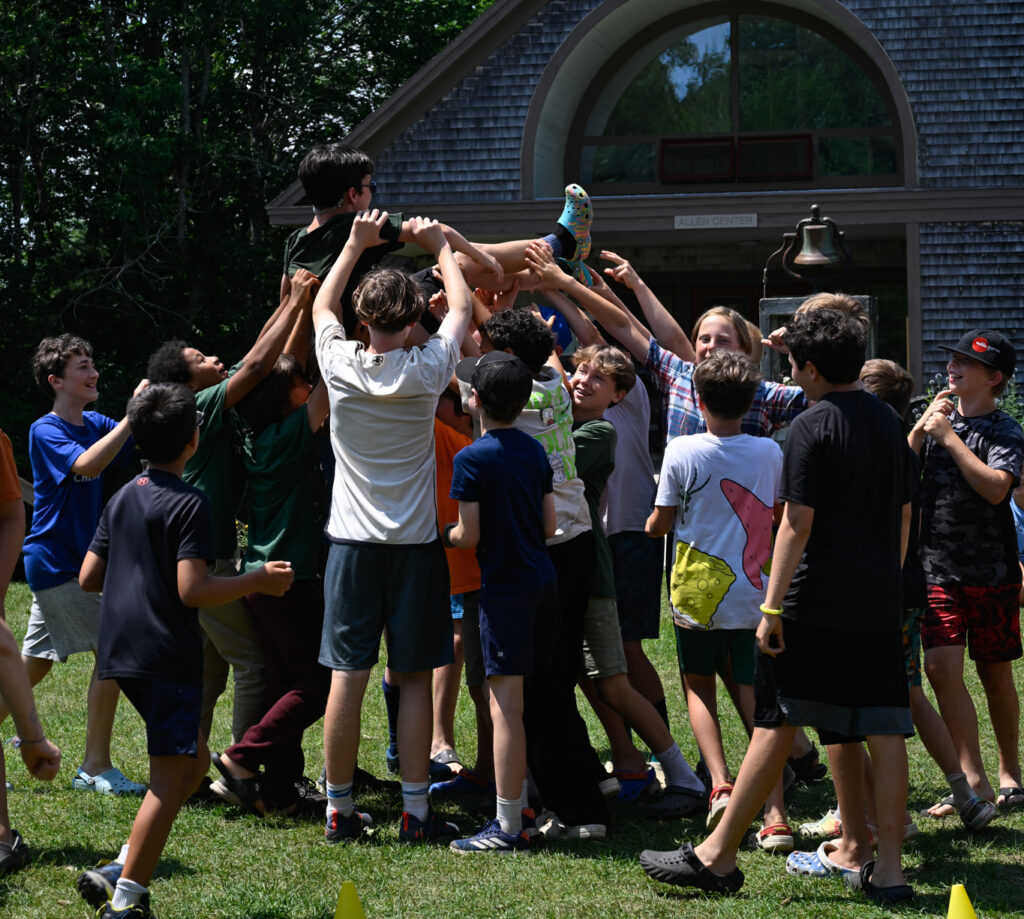
These camp competitions, full of randomness and silliness, are some of my favorite things. They turn into real sporting events by the end, and the energy is always so high. Mealimination and Starch Madness were definitely the loudest I’ve ever heard Westside cheer. That kind of fun, where everyone’s all in, is the magic of camp for me,
Cullen: Let’s talk about next summer. Looking ahead, what are you most excited about?
Katie M.: I’m excited to build on what we started this year. Now that I know how Camp Chewonki runs, I can focus more on building relationships with the kids and enhancing the program. I’m looking forward to coming in with that baseline knowledge and getting to spend more time on the fun stuff.
Cullen: What’s your favorite “camp magic?”
Katie M.: I also love those quirky little traditions that spring up, like Starch Madness. It’s silly, but it gets everyone so involved. I’d love to build up more of that on Eastside.
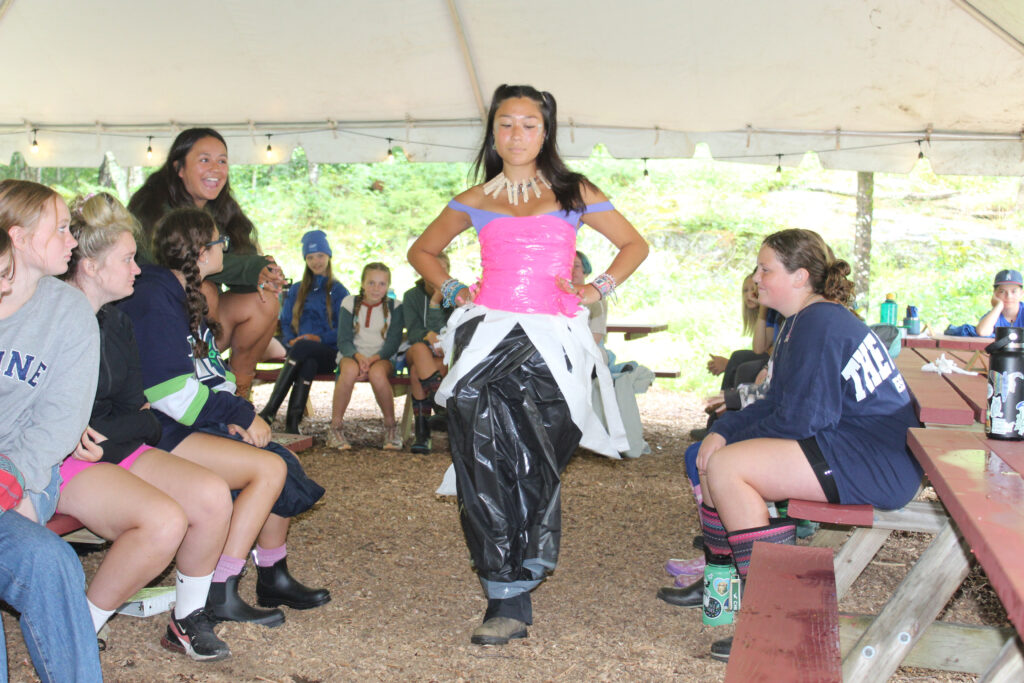
Cullen: I saw some photos from this summer of what looked like a “recycled trash fashion show”. What was that all about?
Katie M.: Yes, it was hilarious. That was the “Extreme Counselor Makeover night.”
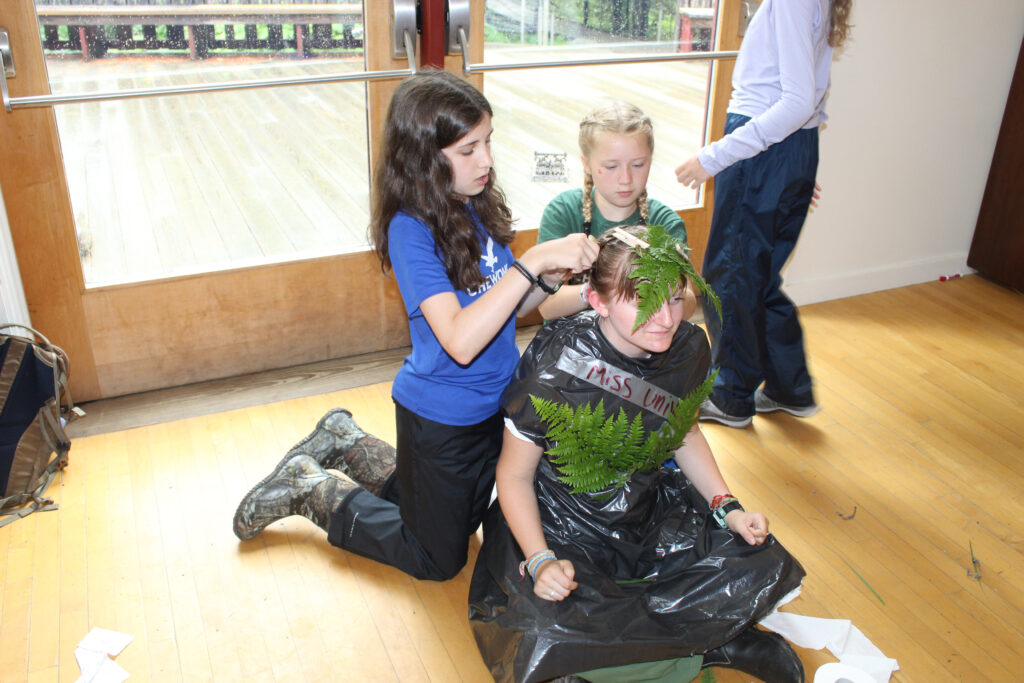
Cullen: Griffin, what are you most excited about for next summer?
Griffin: I’m excited about the staff. We’ve made some additions to our year round staff and have a really great core group of seasonal staff and I’m so proud of what they’ve done this summer. I’m really excited for the future. It’s not about fixing things anymore—it’s about building and fine-tuning. I’m really optimistic about where things are headed.
Cullen: I noticed the “HappyGram” system this summer. Can you tell me more about that?
Griffin: It’s something I’ve carried over from my own camp experiences as a kid. It’s like an internal mail system where people write little notes to each other. They can be really meaningful—I remember getting some HappyGrams that made a huge difference to me. I actually was so homesick my first summer at camp that my parents had agreed to pick me up the following morning and I received so many nice happy grams from people who were sad I was leaving that I decided to stay. I haven’t missed a summer at camp since. I’ve kept a box of them from every summer.
Cullen: Do the campers use them too, or is it mostly staff?
Griffin: The campers get really into it! Maybe too into it. Some of the messages are just silly, but others are really thoughtful and it’s a nice way to compliment them on a skill, or thank them for being kind, without embarrassing kids who might not want to be singled out in front of an audience.
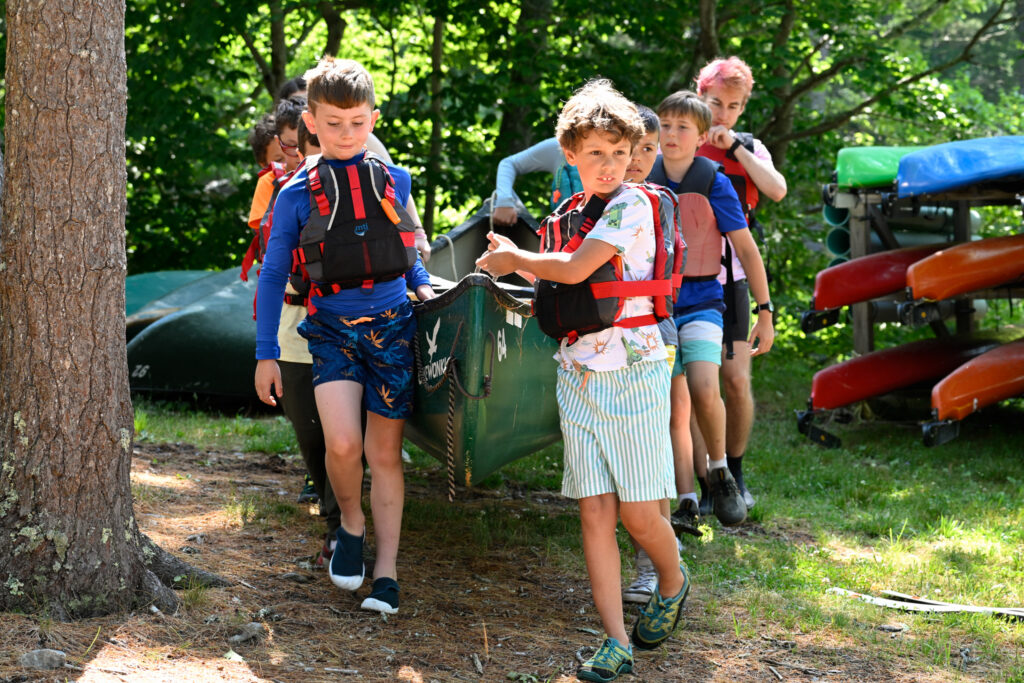
Cullen: What would you introduce to camp if you had a magic wand?
Katie M.: I think it would be fun to do more at the waterfront, like getting snorkel gear or creating silly, improvised water activities. Just more variety for the kids to enjoy.
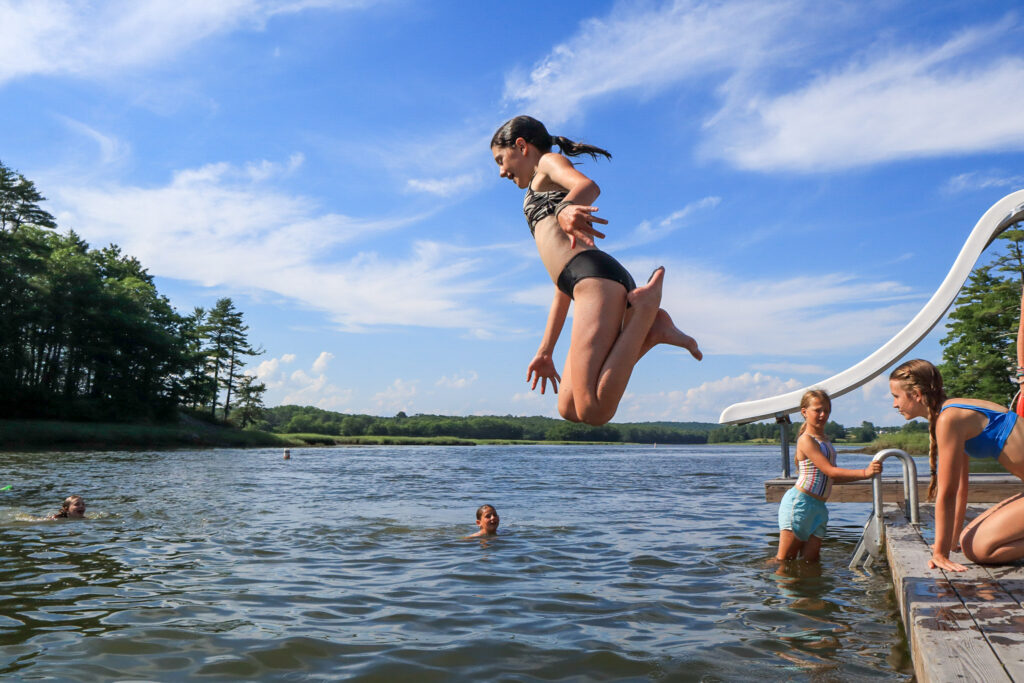
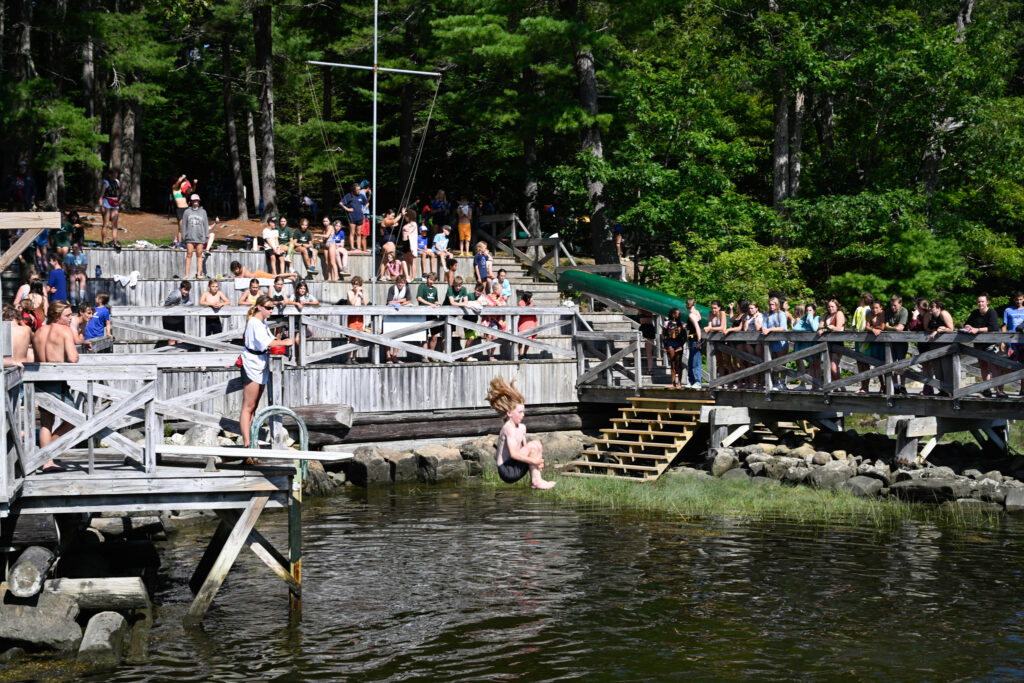
Cullen: Thank you both so much! We can’t wait to see what’s in store for Camp Chewonki in 2025!
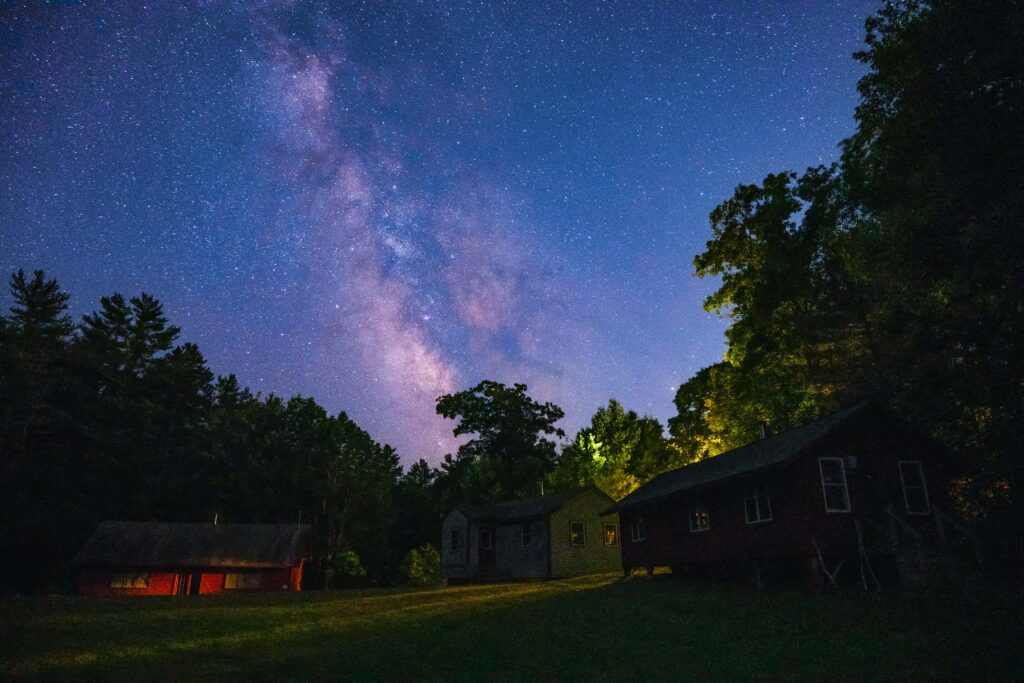
A starry night over Osprey Circle


